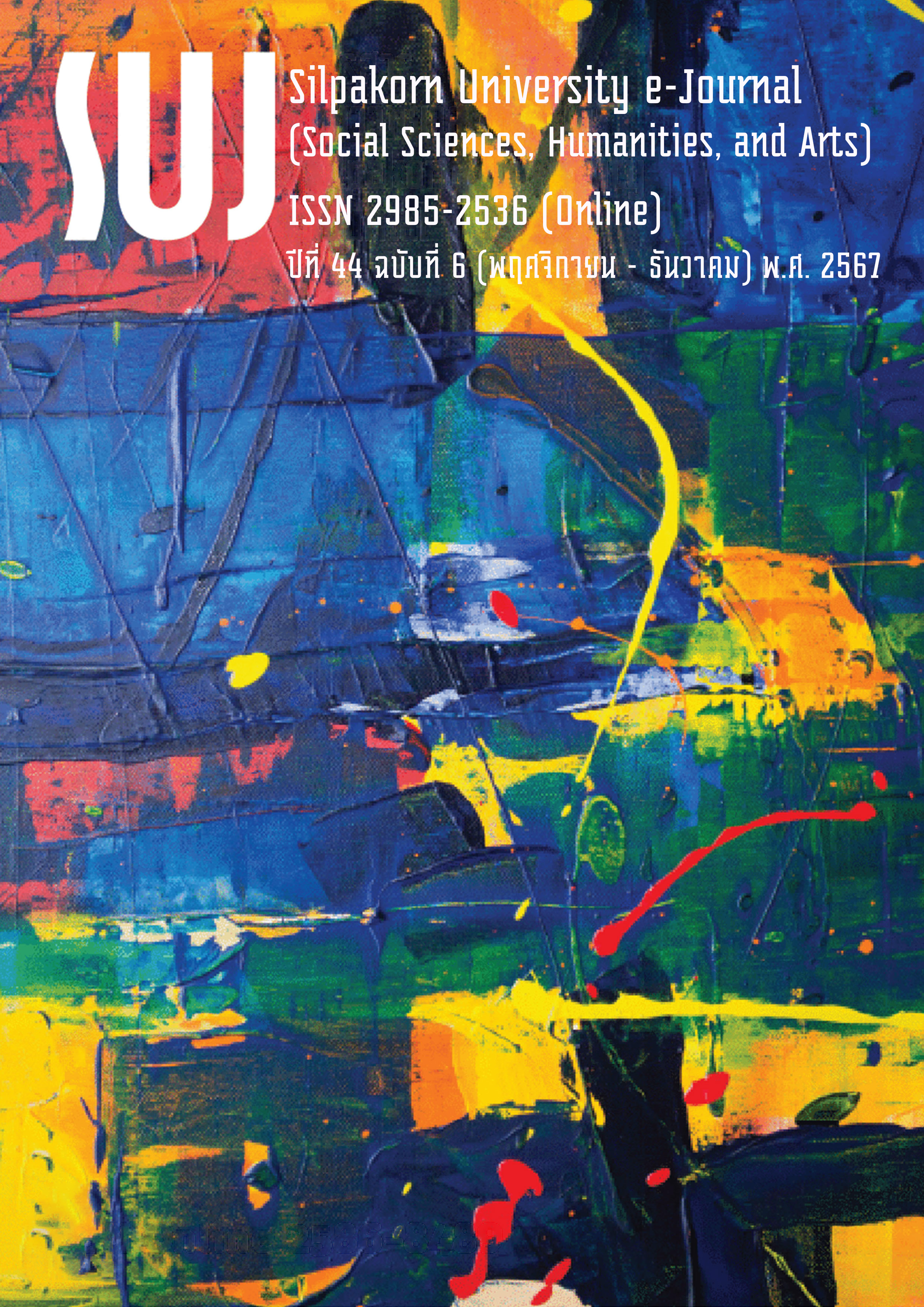ผลสัมฤทธิ์ในการดำเนินโครงการบริหารจัดการทรัพยากรธรรมชาติและสิ่งแวดล้อมชุมชน ปีงบประมาณ พ.ศ. 2563 (Achievements in implementing the community natural resource and environment management project, fiscal year 2020)
Main Article Content
Abstract
การศึกษาครั้งนี้มีวัตถุประสงค์เพื่อติดตามและประเมินผลที่เกิดกับชุมชนจากการดำเนินโครงการจำเป็นเร่งด่วน ภายใต้โครงการบริหารจัดการทรัพยากรธรรมชาติและสิ่งแวดล้อมชุมชน ตามแผนพัฒนาชนบทเชิงพื้นที่ประยุกต์ตามแนวพระราชดำริ (โครงการปิดทองหลังพระ) ปีงบประมาณ พ.ศ. 2563 โดยใช้การสัมภาษณ์เชิงลึกควบคู่กับแนวคิดและทฤษฎีการประเมินผลโครงการ กลุ่มตัวอย่าง ประกอบด้วย ผู้ที่มีส่วนเกี่ยวข้องกับโครงการ และหน่วยงานราชการที่เกี่ยวข้อง ทั้งหมด 72 ราย ผลการศึกษาพบว่า โครงการที่ดำเนินงานในพื้นที่ 8 จังหวัด สามารถตอบสนองความต้องการของประชาชนได้ดี โดยเฉพาะด้านการปรับปรุงสภาพแวดล้อมและคุณภาพชีวิต เช่น การจัดการน้ำในพื้นที่และการส่งเสริมความรู้ด้านสิ่งแวดล้อม นอกจากนี้โครงการยังสนับสนุนการมีส่วนร่วมของประชาชนอย่างกว้างขวาง อย่างไรก็ตาม มีข้อเสนอแนะเกี่ยวกับความจำเป็นในการสนับสนุนงบประมาณและการขยายผลโครงการให้ครอบคลุมพื้นที่เพิ่มขึ้นและพื้นที่ต่อเนื่อง ซึ่งเป็นปัจจัยสำคัญสำหรับการพัฒนาอย่างยั่งยืน การศึกษานี้ยังสามารถนำไปประยุกต์ใช้เพื่อพัฒนากลยุทธ์การดำเนินงานโครงการที่สอดคล้องกับความต้องการของประชาชนในอนาคต และเป็นแนวทางสำหรับการปรับปรุงกระบวนการพัฒนาในระดับชุมชนที่สอดคล้องกับแนวทางการพัฒนาอย่างยั่งยืน
This study aimed to monitor and evaluate the impacts of urgent projects implemented under the Natural Resources and Community Environmental Management Program, aligned with the Applied Rural Area Development Plan under the Royal Initiative (Pid Thong Laung Phra Foundation), during fiscal year 2020. Utilizing in-depth interviews guided by project evaluation theories, the sample comprised 72 stakeholders and relevant officials. The study found that projects implemented in eight provinces effectively addressed community needs, particularly by improving environmental conditions and quality of life. Initiatives such as water management and environmental education were highlighted, and the projects also encouraged broad community participation. However, recommendations include the need for increased funding and expanding project coverage to additional and adjacent areas, critical for sustainable development. The study can inform strategies to align future project implementation with community needs and serve as a guideline for improving sustainable community development processes.
Downloads
Article Details

This work is licensed under a Creative Commons Attribution-NonCommercial-NoDerivatives 4.0 International License.
References
Boonrangrod, Pitchawat. (2015). Evaluation Virtue Lead Knowledge to Philosophy of the Sufficiency Economy Municipality Kanchanaburi (การประเมินโครงการขับเคลื่อนปรัชญาเศรษฐกิจพอเพียงในสถานศึกษาโดยใช้รูปแบบซิป สังกัดเทศบาลเมืองกาญจนบุรี). Master’s dissertation, Kanchanaburi Rajabhat University, Kanchanaburi, Thailand.
Chobkit, Nisa. (2010). An Evaluation of the Conservation and Restoration of “Dara” Folk Art and Culture for Building Relationship with the Community Project in Khuan Don District, Satun Province (การประเมินโครงการอนุรักษ์และฟื้นฟูศิลปวัฒนธรรมพื้นบ้าน “ดาระ” สานสายใยสู่ชุมชน อำเภอควนโดน จังหวัดสตูล). Master’s dissertation, Sukhothai Thammathirat Open University, Nonthaburi, Thailand.
Damrong Rajanubhab Institute, Office of the Permanent Secretary for Interior Ministry of Interior. (2012). Applied Rural Area Development Plan according to the Royal Initiative (The Royal Initiative Discovery Foundation) (การพัฒนาชนบทเชิงพื้นที่ประยุกต์ตามแนวพระราชดำริ (โครงการปิดทองหลังพระสืบสานแนวพระราชดำริ)). Bangkok: Borpitt Printing. [Online]. Retrieved January 31, 2020 from http://www.stabundamrong.go.th/web/book/55/b10_55.pdf
Santipollavut, Sumalee, Vesdapunt, Rosada, & Vesdapunt, Kiatichai. (2016). An enhancement of OTOP towards SMEs, the implement under community enterprise development plan : A case of fashion accessories community enterprise, Nonthaburi province (โครงการยกระดับผู้ประกอบการ OTOP ที่มีศักยภาพก้าวไปสู่ SMEs กิจกรรมดำเนินการตามแผนการพัฒนาวิสาหกิจชุมชน : กรณีวิสาหกิจชุมชนเครื่องประดับแฟชั่น จังหวัดนนทบุรี). The Journal of Faculty of Applied Arts, King Mongkut’s University of Technology North Bangkok, 9(2): 2-14.
Scriven, M. (1991). Prose and cons about goal-free evaluation. Evaluation Practice, 12(1): 55-63.
Sivamethakul, Bhakin. (2016). An Evaluation on Project of Crime Zero Community’s the Provincial Police Region 7 through CIPP Model (การประเมินผลการดำเนินโครงการชุมชนปลอดภัยไร้อาชญากรรมของตำรวจภูธรภาค 7 ตามแบบจำลอง CIPP Model). Master’s dissertation, Mahidol University, Nakhon Pathom, Thailand.
Soisakul, Wirot. (2010). Evaluation of Tambol Internet Project: A Case Study of Subdistrict Administrative Organization in Banbueng District, Chonburi Province (การประเมินผลการดำเนินโครงการอินเทอร์เน็ตตำบล: กรณีศึกษาองค์กรปกครองส่วนท้องถิ่น ในเขตอำเภอบ้านบึง จังหวัดชลบุรี). Master’s dissertation, Burapha University, Chonburi, Thailand.
Taewpho, Ilada. (2020). Project Evaluation: Sartpraracha Project for Learning Center Development Based on Philosophy of Sufficiency Economy of Wat Raiking (Suntornutis) School (การประเมินโครงการ: โครงการศาสตร์พระราชาเพื่อพัฒนาศูนย์การเรียนรู้ตามปรัชญาของเศรษฐกิจพอเพียงของโรงเรียนวัดไร่ขิง (สุนทรอุทิศ)). Master’s dissertation, Silpakorn University, Nakorn Pathom, Thailand.
Tayraukham, Sombat. (2000). Tyler’s goal-based evaluation model (goal-based evaluation model ของ Tyler). Journal of Educational Measurement Mahasarakham University, 5(1): 23-30.
Thepsupa, Piyaraj. (2017). Evaluation of Bann Mankong Project: A Case Study of Tambon Bang Prong Community, Muang District, Samutprakarn Province (การประเมินโครงการบ้านมั่นคง: กรณีศึกษาชุมชนตำบลบางโปรง อำเภอเมือง จังหวัดสมุทรปราการ). Master’s dissertation, National Institute of Development Administration, Bangkok, Thailand.
United Nations Development Account (UNDA). (2019). Project Evaluation Guidelines. [Online]. Retrieved January 31, 2020 from https://www.un.org/development/desa/da/wp-content/uploads/sites/52/da-project-management-documents/2253_1571321382_UN%20DA%20Evaluation%20Guidelines%20(Final).pdf


